Inside the fly-in, fly-out lives of South Aussies: Seven workers share the reality of remote mine work
These childhood sweethearts were just one month into FIFO life when they discovered they were expecting their first child, 11 years on they share how they make it work.
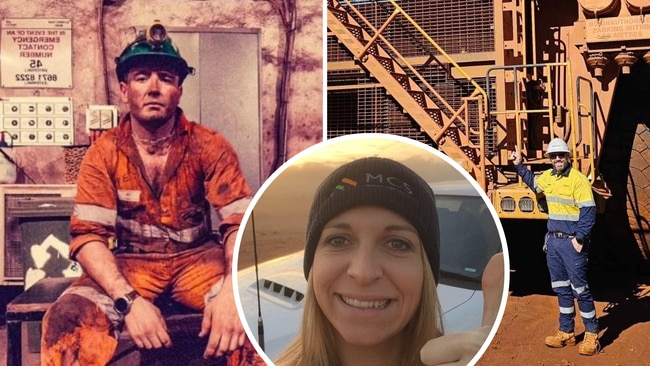
SA News
Don't miss out on the headlines from SA News. Followed categories will be added to My News.
While it’s not for everyone, life as a fly-in, fly-out mining industry worker can reap lucrative financial awards and offer an enviable work-life balance.
Here we meet seven South Australians who have embraced the red dirt and remote living for diverse reasons, from boosting the bank balance, to career development and a lifestyle that allows for “more freedom”, travel and uninterrupted family time.
They share the reality of FIFO life. The highs and lows of rosters which allow them to work half a year but mean they are away from family and loved ones the other half.
They tell how they are driven to provide a comfortable life for their families: according to job posting search engine Jooble, in June the average base salary in iron ore mining was $122,000 rising to $225,000 for offshore oil rig workers.
They are candid about the relationship struggles but also show distance really can make the heart grow fonder.
FIFO FAMILY LIFE
Alissa and Brendan Williams
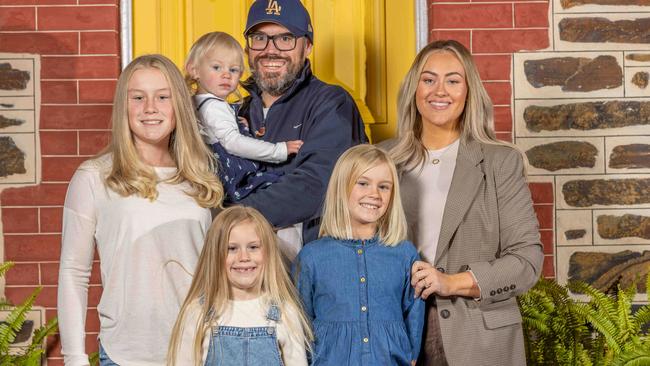
Country childhood sweethearts Alissa and Brendan Williams discovered she was pregnant with their first child a month after he embarked on life as a fly-in, fly-out worker.
They persevered through the good times and bad, uncertainty and challenges – including the heartache of being separated during much of the pandemic – and 11 years on are the proud parents of four girls, driven to provide their daughters the best life they can.
The family live on a rural property at Honiton, near Edithburgh, on the south coast of Yorke Peninsula with Mr Williams, who earns about $200k, working on an iron ore mine more than 3000km away near Newman, in Western Australia’s remote Pilbara region.
FULL LIST: SA’S MOST IN DEMAND MINING JOBS
“It hasn’t always been easy because FIFO is not easy and it can break down relationships pretty quickly; we’ve faced quite a few challenges and rocky relationship moments,” Mrs Williams, who in addition to being the “at-home parent” also runs a local beauty salon, says.
“A lot of (the issues) come because you are both lonely and sleep-deprived; I run my own business, juggle the kids’ needs, their school and sport commitments and am involved in the community … sometimes after putting the kids to bed, I’ll call Brendan but he’ll fall asleep, zonked out, minutes after we’ve started a conversation over Zoom – he’s just mentally and physically exhausted.
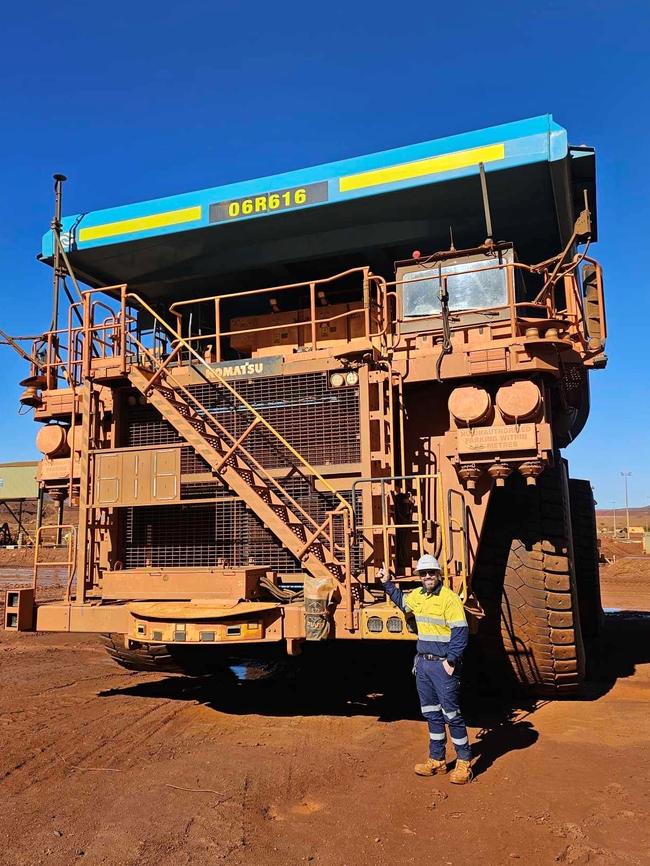
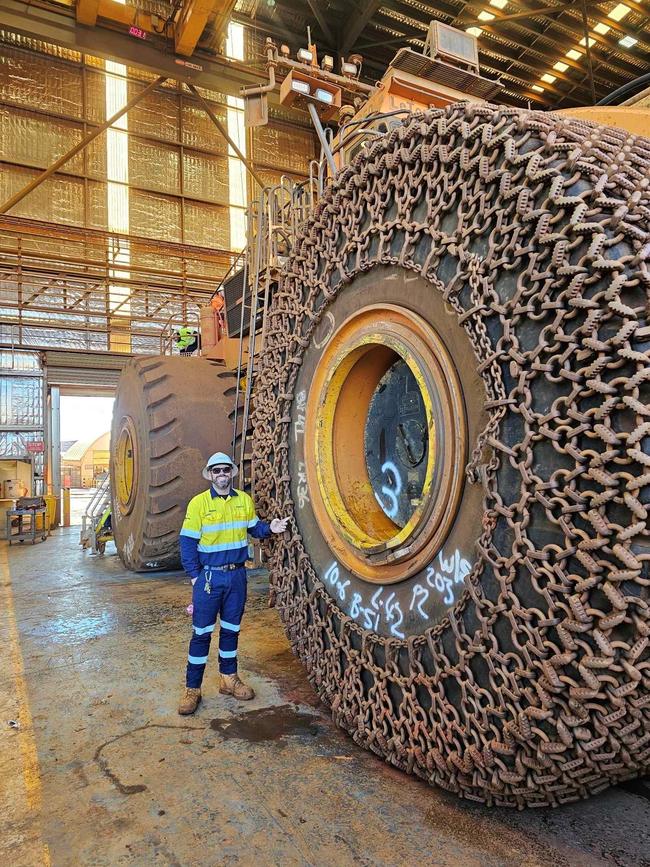
“Brendan and I work on our relationship constantly … we sort of just try to go back to the basics and say, ‘right, we need to focus on these things’ – communication is key.
“I think there is still this stigma about being in the mining industry, that you just need to ‘suck it up’ because you are getting paid ‘the big dollars’, that you made this choice and didn’t have to do it.”
Mrs Williams says the transition from mine site back into family life isn’t always easy – for the home or away parent.
“When you are the one at home trying to keep everything running, you can turn into a bit of a control freak … when Brendan comes home, he does his absolute best to get back into family life but I often find it hard to drop the reins a little bit, which is something I have had to work on, to let him come back in and be the dad and the person he is within our family.”
Mrs Williams says it can feel as though you are forever “counting down” – counting down until a roster ends and then counting down until her girls’ father has to leave again.
“At the moment Brendan’s roster is eight days on, six days off which sounds fantastic but really isn’t when you live in a different state … we basically lose two days to travel,” she says.
The upside, when the devoted husband and dad is home it is “constant time off” and the priority is “being together as a family”.
“From my perspective, I have never been so self-sufficient in my entire life … changing tyres on the side of the road, fixing power issues, water leaks … so, I can be a big asset to him, rather than expecting him to come home and face all the so-called ‘manly duties’,” she says.
NEW FIFO PARENTS
Corey Jones-Alksne & James Alksne
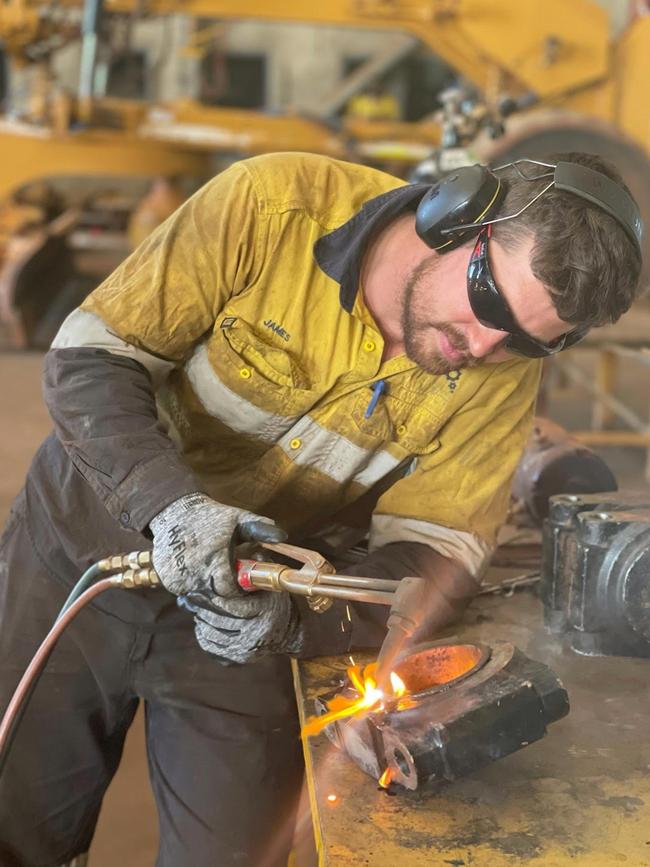
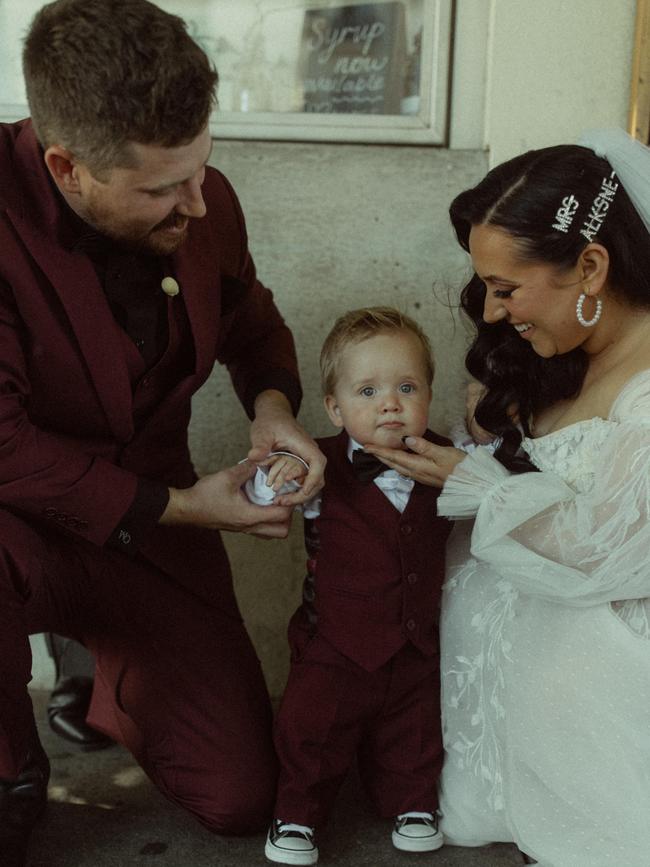
The couple has been together for 11 years with James Alksne working FIFO for the past six years, currently in WA’s Pilbara region where his roster is six weeks on, two weeks off.
Seventeen months ago they welcomed their first child, a little boy named Sterling.
“Something that really isn’t spoken about enough is the toll (FIFO can) take on the relationship between a child and FIFO parent,” Corey Jones Alksne says.
“It’s so hard to watch my husband having to relearn and adjust to our son each time he arrives home … the new foods he likes or doesn’t like, what his favourite toy of the week is.
“It seems crazy but six weeks away from a child that is constantly changing and growing is tough and it absolutely breaks my heart when I have to physically tear Sterling away from James at the airport while he’s screaming, ‘Dada’ … it’s honestly the worst part of this lifestyle.”
On the flip side, family time is truly cherished.
“I do believe distance makes the heart grow fonder because my love and appreciation for my husband grows each time I see him walk through that airport gate,” Mrs Alksne says.
“Any partner of a FIFO worker will understand when I say that we see and live the sacrifice our partners make to ensure we have a beautiful home, or just planning for a better future for our family.
“It’s not something that can truly be explained unless you live through it.”
SINGLE FIFO LIFE
Dylan Barlow
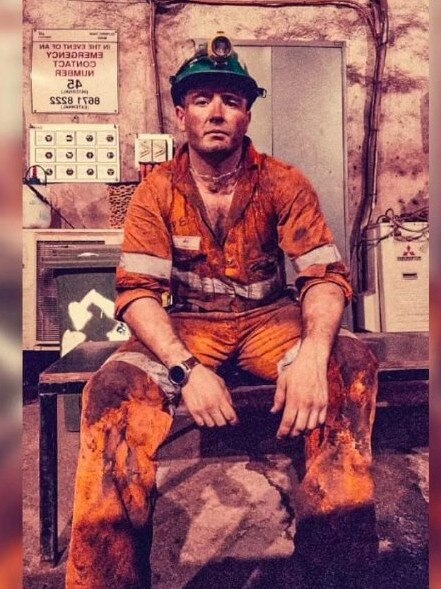
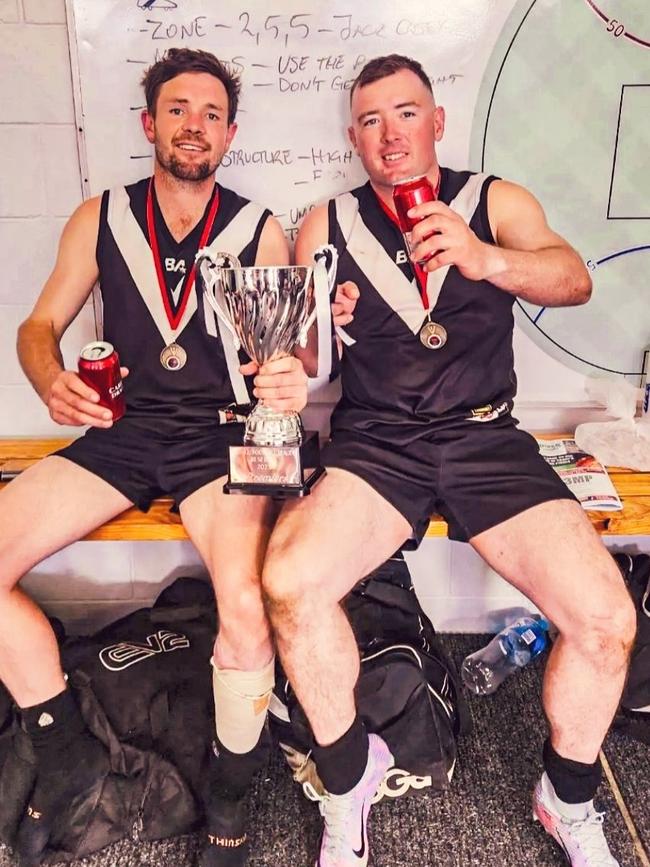
An industrial spray painter and sandblaster by trade, Dylan Barlow, 31, has worked more than 1000km from his home in Kalangadoo near Mount Gambier, in the state’s southeast, for the past five years.
Currently based on an oil and gas field at Moomba, he works for 18 days and is then off for 10 days, allowing him to play at least half the season for his beloved local football club which is chasing its third back-to-back premiership in 2024.
He keeps fit at the onsite camp gym while away.
“It works out pretty well, I’ll be away for two weekends and then back home for two to play my sport … I’ve been around the footy club since I was nine or 10 so it is a big part of my life,” he says, adding he’ll request time off early to ensure he’s available to play come finals time.
“You can work whenever you want but you don’t always get a chance to win a grand final – and we’re going for a third in a row.
“It’s just good to get home to catch up with your mates, friends and family and back to reality for a little bit … to relax for a couple of days.”
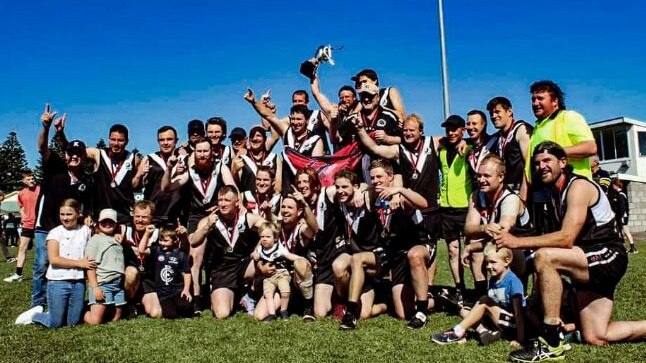
Mr Barlow says working in the mining industry, where he currently makes between $150,000 and $160,000 “on the tools”, is his dream job and he hopes to progress to an offshore location.
“That is where the big dollars are … for now, I am really career driven and focusing on training and upskilling as much as I can,” he says.
“I like the freedom of FIFO work, being able to come home and do anything; if I was working here I would literally be working my guts out six or seven days a week to earn the same kind of money.”
Still the singleton admits there is a downside.
“It is hard to start something new, or be in a relationship, because sometimes they are waiting for you for three weeks to get home for a week … so it can be a little bit unfair,” he said.
“I guess it is what you make it; if you’ve both got some really strong financial goals and really want to get ahead, you can make it work.”
FIFO COST-OF-LIVING SQUEEZE
Louisa and Tim Crowther
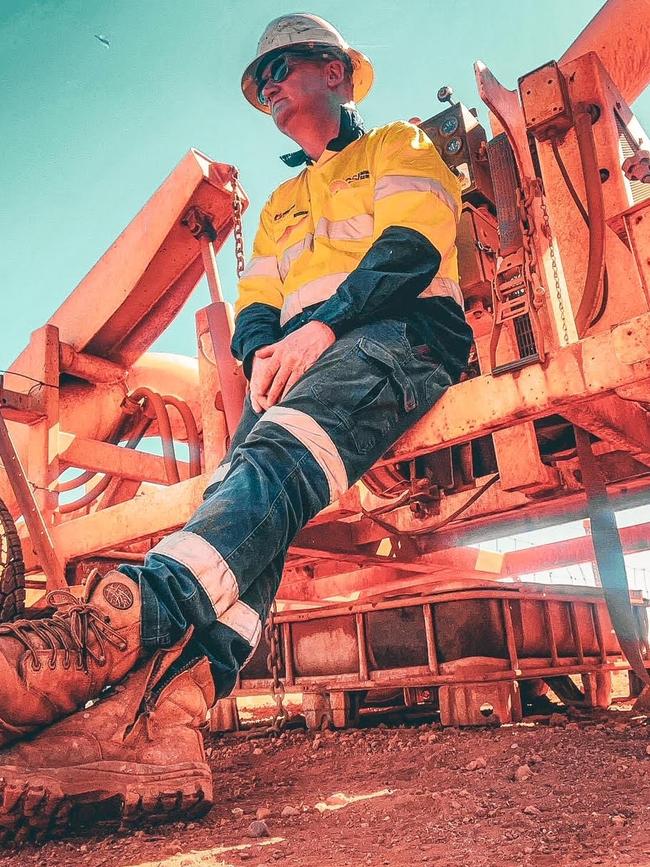
Barossa mum, businesswoman and veteran FIFO wife Louisa Crowther says fly-in, fly-out work doesn’t pay the rich dividends it once did.
The English expats have been together for 27 years, spending the past 16 years in Australia where husband Tim Crowther has worked in the mining industry, currently in Onslow in north west WA on a three-week on, one-week off roster.
“Back then, the money was amazing compared to the cost of living so it also allowed me to not work for the first 10 years of our children’s lives – Charlotte is 13 and Samuel, 9 – and we still had plenty to spare,” Mrs Crowther says.
“Now we feel like we have golden handcuffs on … his salary is good but I have to work as well and we are only just making ends meet.
“He wants to come home, he has had enough of the grind and his body is feeling its age but we can’t afford to do a home salary, it just wouldn’t cover the bills.”
To this end, the couple who say FIFO work has cemented their family’s strong bond, hope an online business they’ve established will fund life post FIFO.
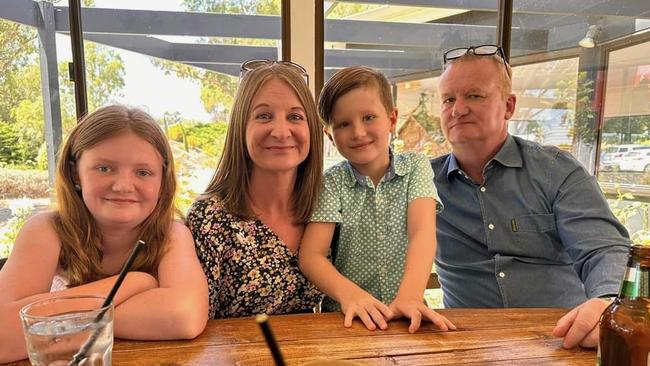
“We are very strong as a couple and always have been and we certainly appreciate the short amount of time we have together,” Mrs Crowther says.
“(Tim) tries to spend time with us all as a family, me on my own and Charlotte and Samuel on their own as well … but five days a month is such a short time.”
She says her biggest learning has been “you don’t have to talk every day”.
“Definitely a text message every morning to say ‘Good morning’ and check-in … talk to each other if you are struggling,” she says.
FIFO NEXT GENERATION
Sophie Easton
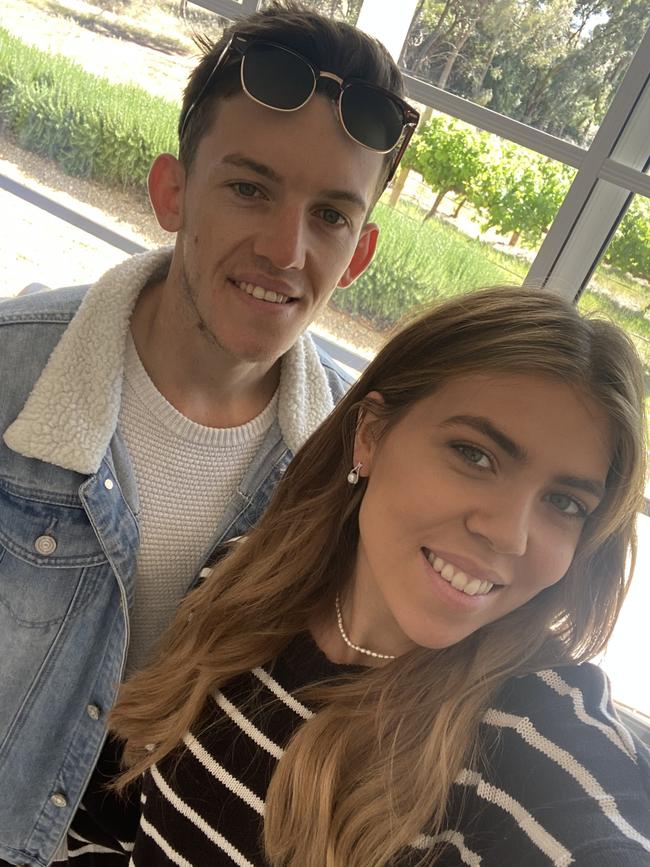
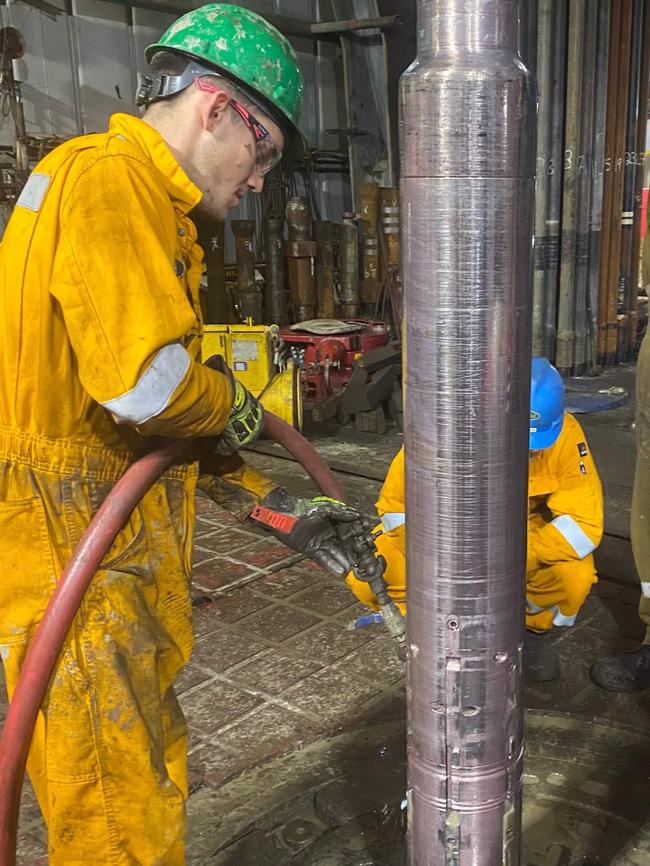
Life as part of a FIFO family is all Sophie Easton has known.
Her dad John has worked on mine sites interstate and overseas her whole life and is currently flying in and out of Papua New Guinea for work – next year he and Sophie’s mum, Marianne, will celebrate 30 years of marriage.
Her sister Jessica is married to a FIFO worker and her own partner of four years, Jack Ford, has worked on an oil rig off Broome in WA for the past three years.
“Growing up, I was used to telling people, ‘my Dad’s not here, he’s at work’ … I was used to him not being able to come to Christmases or birthdays or Easters,” the now 26-year-old says.
“But when Jack started working FIFO it took him a little while to adjust and realise that life keeps happening here while he is away – his roster is one month on and one month off; it is a weird sort of thing to be in, he does only work half the year but is gone the other half.
“Some people are like ‘that’s crazy’ but it does work for us – we kind of just jolt back into our lifestyle when he is back.
“I feel like our relationship has grown stronger because he does work away as you really appreciate the time you spend together; we are not just sitting on our phones, sitting in front of the TV but are out doing stuff, seeing our friends and going on mini holidays.
“The spark reignites each month.”
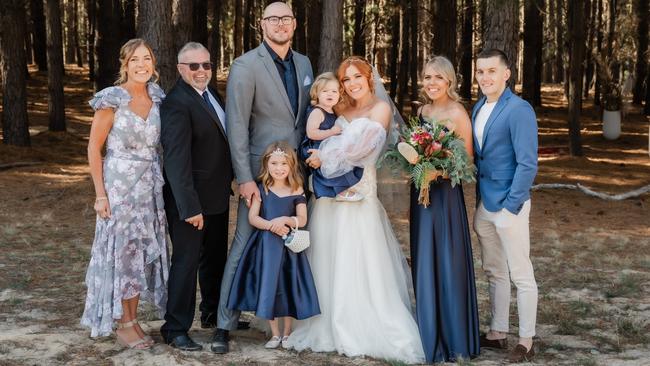
A winemaker by trade, Jack, 27, is working as a floorman earning in excess of $100,000 for six months of work.
Ms Easton, a student and fitness industry worker, says she draws on support from friends and family when needed telling how as an adult, she appreciates the effort her mum and dad put in to providing her a good childhood.
“I have always admired Mum, she is definitely a really strong and inspiring woman who always tried to make everything as normal as possible … a lot of times people would think she was a single mum,” Ms Easton says.
“I also take my hat off to my dad … every time he came home he was 100 per cent hands-on; he would make our lunches and take us to school, come out in the freezing cold to watch me play netball – it was more about the quality of time than the quantity of time.”
FIFO LIFE A DECADE ON
Danielle and Michael Rizzo
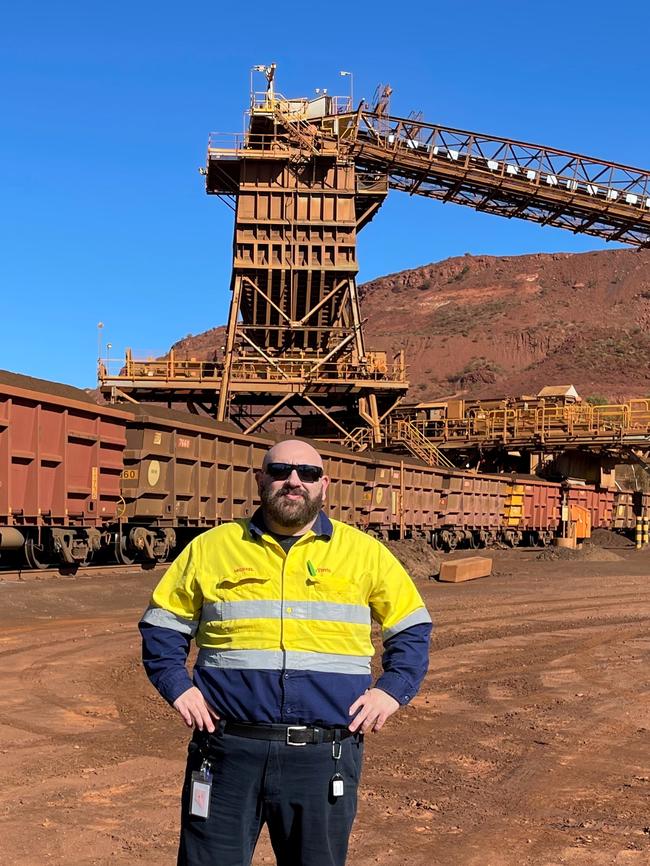
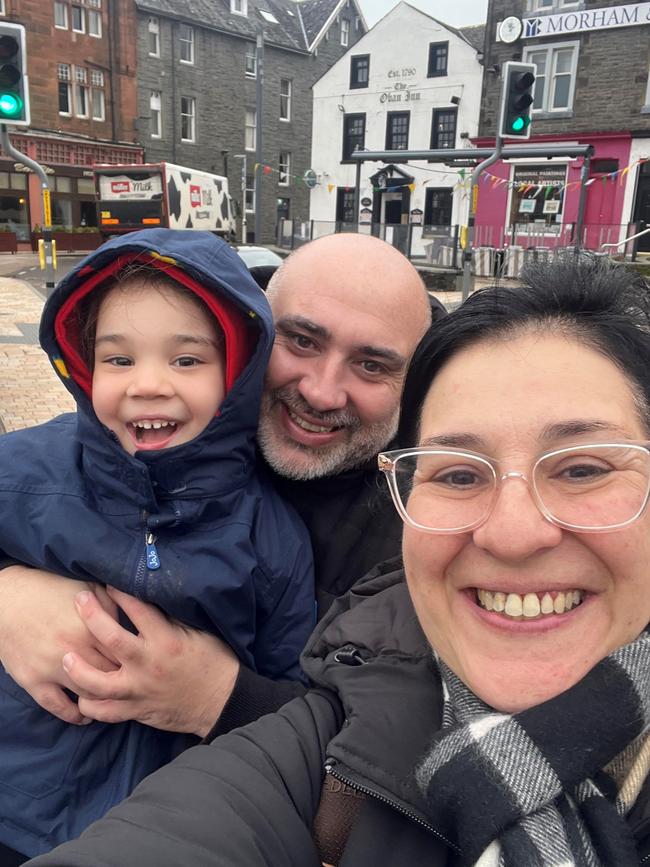
Danielle and Michael Rizzo are the first to admit FIFO life isn’t for everyone.
But the couple who has been together for 12 years has made it work for them for the past decade, welcoming a little girl Marcella to their family five years ago.
Mr Rizzo currently works at Tom Price in the Western Australian Pilbara, two weeks on and two weeks off.
“The best part about FIFO is having Michael home for two weeks … the time away is hard but it makes the time home even more special … our daughter is a ‘Daddy’s girl’ and loves having him home,” Mrs Rizzo says.
“FIFO life may not work for everyone.
“We have been very lucky that the company my husband works for does not only support its staff but also their families … when Covid hit and WA was closing the border, the company flew myself and my daughter to WA and my husband was paid an allowance to help with the costs while we stayed there … if they didn’t do this we would have possibly been apart for years.”
Her top tip for making the relationship work? “Keep communication open; understand that you may not always hear from them but they will contact you when able to do so.”
FIFOs HELPING FIFOs
Natalie Hollenberg Stal and Byron Stal
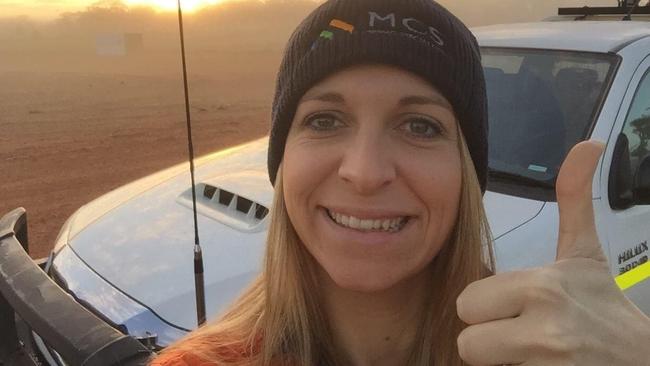
Natalie Hollenberg Stal understands better than most the unique demands of fly-in, fly-out work and the strains it can have on relationships.
Before starting a family seven years ago with her FIFO husband, Bryon Stal, she spent about eight years working on remote mine sites – sometimes they’d work at the same site and share rosters, sometimes they wouldn’t. He’d be at home while she was at work and vice versa.
Today, as well as being the “at-home” parent to their two young children, aged seven and three, she is a life coach, hypnotherapist and counsellor helping FIFO workers and their partners.
The qualified neuro-linguistic programming (NLP) practitioner also produces a podcast, specifically aimed at the partners of FIFO workers.
“I wanted to have somewhere FIFO partners could come and listen to some of the subjects they talk about with their girlfriends and also really wanted to break down the poor communication that can really affect FIFO families,” she says.
“(Social media) can play a role in helping people feel connected and part of a community but we need to be really careful that it is a safe, positive place and not negative, making the situation you are in feel even more dark and dire.
“Having worked FIFO it helps me understand the circumstances of the work better.
“I think communication is probably the thing that comes up most (with clients) … FIFO does make it harder to communicate; when you are seeing someone face-to-face at the end of a hard day there is a whole heap of information you can get just by taking in their body language and the little things they say … the partner on-site is not really understanding what has happened in the day for you and the kids.
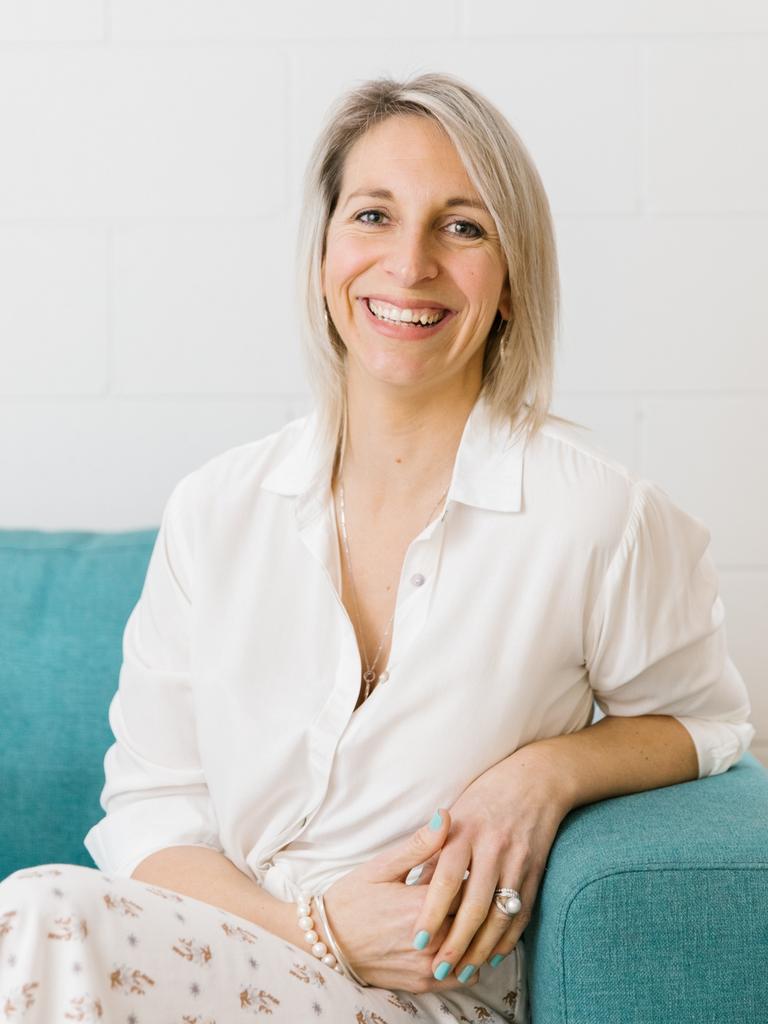
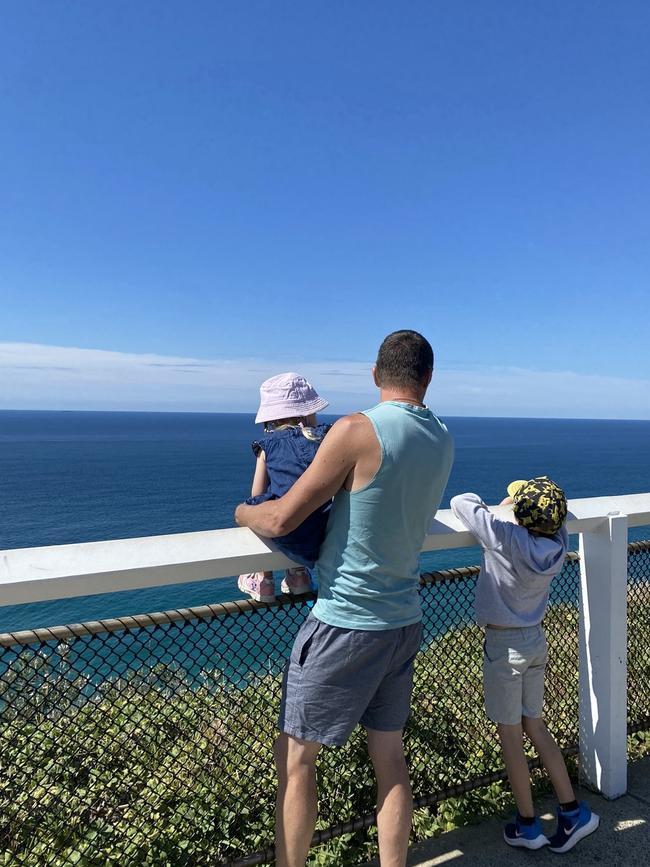
“A lot of the breakdown I see stems from resentment; the person away is normally the one earning the big money but at the same time the person at home puts a lot more time into running the family and the household … that is what many people struggle with.
“The person at home is saying, ‘Well, you get to go away and sit in your room and chill out everyday but I have the kids from 6am to 8pm’.
“So, a lot of what I talk about is, ‘We aren’t equal, we are different but just as valuable’ … it is about respecting they are both ‘worth’ the same, that one is not worth more than the other.
“I do think it comes down to communication and making sure you are choosing the lifestyle … that is something that is working for you and your family and ensuring you don’t checkmate yourself financially, so you don’t feel you have a choice.”
While not divulging her husband’s income, she says the initial lure of FIFO was financial but is about lifestyle – her husband currently works two weeks on, two weeks off.
“Yes, he comes home and there needs to be a readjustment time – I say this is at least three days – but he is then really present, mentally and physically, and that isn’t the case for a lot of people who work 9am to 5pm,” she says.
“That is why it still really works for us as a family.”
More Coverage
Originally published as Inside the fly-in, fly-out lives of South Aussies: Seven workers share the reality of remote mine work






